By using this website, you are obliged to accept the following policies:
GDPR
License
Privacy Policy
Terms and Conditions
Cookies Policy
Disclaimer
Advertising Policy
GDPR
Our Privacy Policy
This privacy policy will explain how we use the personal data we collect from you when you use our website.
Topics:What data do we collect?
How do we collect your data?
How will we use your data?
How do we store your data?
Marketing
What are your data protection rights?
What are cookies?
How do we use cookies?
What types of cookies do we use?
How to manage your cookies
Privacy policies of other websites
Changes to our privacy policy
How to contact us
How to contact the appropriate authorities
What data do we collect?We collect the following data:
Personal identification information (Name, email address, phone number, etc.)
How do we collect your data?You directly provide us with most of the data we collect. We collect data and process data when you:
Register online or place an order for any of our products or services.
Voluntarily fill forms such as contracts,
letters, and CVs.
Voluntarily complete a customer survey or provide feedback on any of our message boards or via email.
Use or view our website via your browser's cookies.
How will we use your data?We collect your data so that we can:
- Process your order and manage your account.
- Email you with special offers on other products and services we think you might like.
If you agree, we will share your data with our partner companies so that they may offer you their products and services.
How do we store your data?We securely stores your data offline and online. We will keep your data for a limited time period, about 3 months. Once this time period has expired, we will delete your data.
MarketingWe would like to send you information about products and services of ours that we think you might like, as well as those of our partner companies.
If you have agreed to receive marketing, you may always opt out at a later date.
You have the right at any time to stop us from contacting you for marketing purposes or giving your data.
If you no longer wish to be contacted for marketing purposes, please
unsubscribe.
What are your data protection rights?
We would like to make sure you are fully aware of all of your data protection rights. Every user is entitled to the following:
- The right to access - You have the right to request us for copies of your personal data. We may charge you a small fee for this service.
- The right to rectification - You have the right to request that we correct any information you believe is inaccurate. You also have the right to request us to complete the information you believe is incomplete.
- The right to erasure - You have the right to request that we erase your personal data, under certain conditions.
- The right to restrict processing - You have the right to request that we restrict the processing of your personal data, under certain conditions.
- The right to object to processing - You have the right to object to our processing of your personal data, under certain conditions.
- The right to data portability - You have the right to request that we transfer the data that we have collected to another organization, or directly to you, under certain conditions.
If you make a request, we have one month to respond to you. If you would like to exercise any of these rights, please contact us at our email:
CookiesCookies are text files placed on your computer to collect standard Internet log information and visitor behavior information. When you visit our websites, we may collect information from you automatically through cookies or similar technology
How do we use cookies?We use cookies in a range of ways to improve your experience on our website, including:
- Keeping you signed in
- Understanding how you use our website
What types of cookies do we use?There are a number of different types of cookies, however, our website uses:
- Functionality - We use these cookies so that we recognize you on our website and remember your previously selected preferences. These could include what language you prefer and location you are in. A mix of first-party and third-party cookies are used.
- Advertising - OWe use these cookies to collect information about your visit to our website, the content you viewed, the links you followed and information about your browser, device, and your IP address. We sometimes share some limited aspects of this data with third parties
for advertising purposes. We may also share online data collected through cookies with our advertising partners. This means that when you visit another website, you may be shown advertising based on your browsing patterns on our website.
How to manage cookiesYou can set your browser not to accept cookies, and the above website tells you how to remove cookies from your browser. However, in a few cases, some of our website features may not function as a result.
Privacy policies of other websitesOur website contains links to other websites. Our privacy policy applies only to our website, so if you click on a link to another website, you should read their privacy policy.
Changes to our privacy policyWe keep our privacy policy under regular review and places any updates on this web page.
How to contact usIf you have any questions about our privacy policy, the data we hold on you, or you would like to exercise one of your data protection rights, please do not hesitate to contact us.
How to contact the appropriate authorityShould you wish to report a complaint or if you feel that we did not address your concern in a satisfactory manner, you may contact the Information Commissioner's Office.
Personal License
You are required to abide by the following licensing terms:
Rights
will not be responsible for any outcome that may occur during the course of usage of our services. We reserve the right to change and revise the resource usage policy at any moment.
We do not hire people on our own, and we have no control over those jobs or salaries; therefore, takes no responsibility and assumes no liability for any content provided by you or any third party.
Prohibitions
You do not have the right to redistribute, resell, lease, license, or sub-license our services to any third-party without our permission.
For any resaleable web applications or software programs, you should not include our graphic
resources as an additional attachment. This will be considered a redistribution of our resources, which is forbidden by us.
UNDER NO CIRCUMSTANCES SHALL BE LIABLE FOR ANY DIRECT, INDIRECT, SPECIAL, INCIDENTAL OR CONSEQUENTIAL
DAMAGES, INCLUDING, LOSS OF DATA OR PROFIT, ARISING OUT OF THE USE, OR THE INABILITY TO USE, THE MATERIALS ON THIS SITE, EVEN IF OR AN AUTHORIZED REPRESENTATIVE HAS BEEN ADVISED OF THE POSSIBILITY OF SUCH DAMAGES. IF YOUR USE OF
MATERIALS FROM THIS SITE RESULTS IN THE NEED FOR SERVICING, REPAIR OR CORRECTION OF EQUIPMENT OR DATA, YOU ASSUME ANY COSTS THEREOF.
Privacy Policy
respects each individual’s right to personal privacy. We collect and use your personal information only to track sales, visits to our website and to send periodic e-mails with
important updates. We will not transfer users’ information to any other company.
Developer License
You are required to abide by the following licensing terms:
Rights
will not be responsible for any outcome that may occur during the course of usage of our resources and services.
Prohibitions
You do not have the right to redistribute, resell, lease, license, or sub-license our services to any third-party without our permission.
For any resaleable web applications or software programs, you should not include our graphic
resources as an additional attachment. This will be considered a redistribution of our resources, which is forbidden by us.
UNDER NO CIRCUMSTANCES SHALL BE LIABLE FOR ANY DIRECT, INDIRECT, SPECIAL, INCIDENTAL OR CONSEQUENTIAL
DAMAGES, INCLUDING, LOSS OF DATA OR PROFIT, ARISING OUT OF THE USE, OR THE INABILITY TO USE, THE MATERIALS ON THIS SITE, EVEN IF OR AN AUTHORIZED REPRESENTATIVE HAS BEEN ADVISED OF THE POSSIBILITY OF SUCH DAMAGES. IF YOUR USE OF
MATERIALS FROM THIS SITE RESULTS IN THE NEED FOR SERVICING, REPAIR OR CORRECTION OF EQUIPMENT OR DATA, YOU ASSUME ANY COSTS THEREOF.
Privacy Policy
respects each individual’s right to personal privacy. We collect and use your personal information only to track sales and visits to our website and to send periodic e-mails with
important updates. We will not transfer users’ information to any other company.
Privacy Policy
Important notice:
This privacy policy has been compiled to better serve those who are concerned with how their 'personally identifiable information' (PII) is being used online. PII, as used in US privacy law and information security, is information that can be used on its own
or with other information to identify, contact, or locate a single person, or to identify an individual in a context. Please read our privacy policy carefully to get a clear understanding of how we collect, use, protect, or otherwise handle your personally identifiable information in
accordance with our website.
What personal information do we collect from the people that visit our website?
When registering on our site, as appropriate, you may be asked to enter your name, email address, phone number, or other details to help you with your experience.
When do we collect information?
We collect information from you when you register on our site, subscribe to a newsletter, respond to a survey, fill out a form, or enter information on our site.
How do we use your information?
We may use the information we collect from you when you register, make a purchase, sign up for our newsletter, respond to a survey or marketing communication, surf the website, or use certain other site features in the following ways:
• To personalize the
user's experience and to allow us to deliver the type of content in which you are most interested.
• To improve our website in order to better serve you.
• To assist us in responding to your customer service requests more effectively.
• Organize a contest, promotion, survey, or other website feature.
• To help you connect with employers all over the world.
How do we protect visitor information?
• Our website is scanned on a regular basis for security holes and known vulnerabilities in order to make your visit to our site as safe as possible.
• We run malware
scans on a regular basis.
• Your personal information is contained behind secured networks and is only accessible by a limited number of people who have special access rights to such systems and are required to keep the information confidential.
• To ensure the security of a user's personal information, we use a variety of security measures when they place an order, enter, submit, or access their information.
• All transactions are processed through a gateway provider and are
not stored or processed on our servers.
Do we use 'cookies'?
Yes. Cookies are small files that a site or its service provider transfers to your computer's hard drive through your Web browser (if you allow) that enable the site's or service provider's systems to recognize your browser and
capture and remember certain information. For instance, we use cookies to help us remember and process the items in your shopping cart. They are also used to help us understand your preferences based on previous or current site activity, which enables us to provide you with improved
services. We also use cookies to help us compile aggregate data about site traffic and site interaction so that we can offer better site experiences and tools in the future.
We use cookies to:
• Help remember and process the items in the shopping cart.
• Recognize and remember the user's preferences for future visits.
You can choose to have your computer warn you each time a
cookie is being sent, or you can choose to turn off all cookies. You do this through your browser (like Internet Explorer) settings. Each browser is a little different, so look at your browser's Help menu to learn the correct way to modify your cookies.
If you disable cookies,
some features will be disabled. It won't affect the user experience that makes your site experience more efficient, and some of our services will not function properly.
Third-Party Information
Unless we provide you with advance notice, we do not sell, trade, or otherwise transfer your personally identifiable information to third parties. This does not include partners and other parties who assist us
in operating our website, so long as those parties agree to keep this information confidential. We may also release your information when we believe release is appropriate to comply with the law, enforce our site policies, or protect our or
others' rights, property, or safety.
However, non-personally identifiable visitor information may be provided to other parties for marketing, advertising, or other uses.
Third-party links
We do not include or offer third-party products or services on our website.
The California Online Privacy Protection Act
CalOPPA is the first state law in the nation to require commercial websites and online services to post a privacy policy. The law's reach stretches well beyond California to require a person or company in the
United States (and conceivably, the world) that operates websites collecting personally identifiable information from California consumers to post a conspicuous privacy policy on its website stating exactly what the information being collected is and those individuals with whom it is
being shared, and to comply with this policy.
According to CalOPPA we agree to the following:
Users can visit our site anonymously.
Once this privacy policy is created, we will add a link to it on our home page, or at a minimum, on the first significant page after entering our website.
Our
Privacy Policy link includes the word 'Privacy', and can be easily found on the page specified above.
The policy may be amended from time to time. When we do, we will let you know by appropriate means, such as by posting the revised policy on this page with a new "Last Updated"
date.
How does our site handle do not track signals?
We honor do not track signals and do not track, plant cookies, or use advertising when a Do Not Track (DNT) browser mechanism is in place.
Does our site allow third-party behavioral tracking?
It's also important to note that we do not allow third-party behavioral tracking.
Fair Information Practices
The Fair Information Practices Principles form the backbone of privacy law in the United States, and the concepts they include have played a significant role in the development of data protection laws around the globe.
Understanding the Fair Information Practice Principles and how they should be implemented is critical to complying with the various privacy laws that protect personal information.
In order to be in line with Fair Information Practices, we will take the following responsive action, should a data breach occur:
Within 1 working day, we will notify the users via email.
We will notify the users via in-site notification within 1
working day
We also agree with the individual redress principle, which requires that individuals have the right to pursue legally enforceable rights against data collectors and processors who fail to adhere to the law. This principle requires not only that individuals have
enforceable rights against data users, but also that individuals have recourse to courts or government agencies to investigate and/or prosecute non-compliance by data processors.
The CAN SPAM Act
The CAN-SPAM Act is a law that sets the rules for commercial email, establishes requirements for commercial messages, and gives recipients the right to have emails stopped from being sent to them.
We collect your email address so that we can:
• Distribute information, respond to inquiries, and/or answer other requests or questions.
• Handle orders and send order information and updates.
• We may also send you additional information related to your service.
To be in accordance with CAN-SPAM, we agree to the following:
• Do not use fictitious or misleading subject lines or email addresses.
• In some reasonable way, identify the message as an advertisement.
• Include our company's or site headquarters' physical address.
• If a third-party email marketing service is used, ensure that it is compliant.
• Respond to opt-out/unsubscribe requests as soon as possible.
• Make it possible for users to unsubscribe by clicking the unsubscribe link at the bottom of each email.
If at any time you would like to unsubscribe from receiving future emails, .
• If you follow the
instructions, we can unsubscribe you from ALL correspondence right away.
Terms and Conditions
Please read this document carefully. This is a legal agreement between you (either an individual or an entity) and , the developer of
https:// website.
We're excited to help you discover job opportunities that match your interests. Before you get started, please take a moment to read these Terms and Conditions (“Terms”). By using our website and tools ("Service"),
you agree to these Terms.
1. What We Do
Our goal is simple: to help you explore job opportunities using AI that learns from your preferences. The Service suggests jobs and provides links to openings that may interest you. We're not an employer, agency or recruiter. We don't take part in the hiring
process, and we can't influence decisions made by employers.
2. What We're Not Responsible For
We want you to have a great experience, but there are a few things outside of our control:
- Any information related to jobs are retreived by AI from web search results. We cannot take responsibility for the accuracy of every job posting,
but we do our best to verify them.
- Any decisions you make about applying, interviewing, or accepting a job are entirely yours. does not get involved in the hiring process, and we have no control over jobs or salaries.
- We
can't promise that a job you see will lead to an interview or offer.
- We're not responsible for salary, work conditions, job quality, or any part of the employment relationship.
3. User Monitoring and Security
To protect our Service, users, and staff, and to prevent abuse, fraud, or illegal activity, reserves the right to collect and monitor certain information about your use of the Service, including
but not limited to:
- Your IP address
- Your approximate geographic location
- Your device and browser information
- Your personal information
- Your activity on the Service, including pages visited, features used, and interactions
By using the Service, you
agree that this information may be collected and used for purposes including:
- Ensuring compliance with these Terms
- Preventing abusive or illegal behavior
- Investigating misconduct
- Reporting serious violations to authorities, if necessary
- We will handle this
information in accordance with our Privacy Policy and applicable law.
4. User Conduct and Prohibited Behavior
is committed to providing a safe, professional, and respectful environment. Any behavior that is abusive, threatening, unlawful, or disruptive will not be tolerated.
By using the
Service, you agree that you will never:
- Harass, insult, threaten, or intimidate our staff, other users, or third parties
- Post illegal, discriminatory, offensive, or harmful content
- Attempt to hack, disrupt, manipulate, or misuse the Service in any way
- Engage in
fraud, impersonation, or other criminal or unethical activities
Consequences of Misconduct:
Violations of these rules are taken seriously. Depending on the severity of your actions, we may:
- Suspend or permanently terminate your account.
- Block access to the Service
immediately.
- Maintain a record of serious misconduct within our platform (to prevent repeat abuse).
- In cases of serious abuse, threats, fraud, or illegal activity, we may submit formal requests or reports to local authorities. This may include conduct that, under applicable
law, could lead authorities—at their sole discretion—to impose legal restrictions such as travel limitations or other protective measures.
- Add a record to the 'International Employee's Blacklist' (where is legally possible).
- Take legal action if your behavior constitutes
harassment, threats, fraud, or other legally actionable offenses, which may include claiming compensation for damages.
- Report illegal, threatening, or abusive behavior to your local authorities.
- Whatever action seems appropriate for solving an issue.
5. Your Part
To keep everything working smoothly, we ask that you:
- Share information that is accurate and truthful.
- Use the Service respectfully and legally.
- Avoid trying to misuse or interfere with the AI or website.
- Make your own checks before applying
to a job or sharing personal information with an employer.
- Do not create multiple accounts on our website because they might interfere with each other and will generate errors.
6. About the AI Recommendations
Our AI helps you discover opportunities, but it isn't perfect.
Sometimes recommendations may be:
- Not fully accurate
- Outdated
- Not exactly what you're looking for.
Think of the AI as a helpful guide-but not a professional
advisor.
7. Links to Other Websites
Some job listings may redirect you to third-party websites.
We don't own or control these sites, so we're not responsible for their content or policies. Always check to make sure you're comfortable with how they handle your data and
applications.
8. Your Privacy
We care about your privacy. Information about how we collect and use your data is explained in our Privacy Policy. Your information is stored encrypted on our protected servers and it can be viewed online by companies.
9. Our Content and Technology
Everything on the website-designs, features, text, and technology-is protected and belongs to us or our partners. You're welcome to use the Service for personal use, but not to copy, modify, or reuse it in ways we haven't allowed.
10. Service Availability
We do our best to keep the Service running smoothly, but sometimes things happen. We can't guarantee the website will always be available, error-free, or completely secure.
11. Limitation of Liability
To put it gently: we can't be responsible for damages or losses caused by using the Service or by anything related to job applications, job outcomes, or third-party interactions.
makes no express
or implied warranties regarding such third-party websites or products, and accepts no liability for any errors or omissions, loss of financial resources, or damage or injury to persons or property resulting from the use or operation of any such products or any materials,
instructions, methods, or ideas contained on such websites.
If something goes wrong with your use of the Service, our total liability is limited to what you paid us (if anything).
12. Changes to These Terms
We may update these Terms occasionally to improve clarity or reflect changes in the Service. If we make updates, we'll note the date at the bottom. Continuing to use the Service means you accept the revised Terms.
13. Ending Your Use of the Service
You're free to stop using the Service at any time. We may also suspend or limit access if someone breaks these Terms or uses the Service in harmful ways. If you do not follow our indications, we have the right to disqualify you at any
time.
By using our website, you accept our terms and conditions specified above.
Cookies Policy
Important notice:This policy explains how cookies are used on this website. The policy may be amended from time to time. When we do, we will let you know by appropriate means, such as by posting the revised policy on this page with a new "Last Updated" date. By using this
site, you agree to the placement of cookies on your computer in accordance with the terms of this policy. If you do not wish to accept cookies from this site, please either disable cookies or refrain from using this site.
1. What exactly are Cookies?A cookie is a text-only string of information that a website transfers to the cookie file of the browser on your computer's hard disk so that the website can recognise you when you revisit and remember certain information
about you. This can include which pages you have visited, choices you have made from menus, any specific information you have entered into forms, and the time and date of your visit.
2. Types of CookiesThere are two main types of cookies:
Session cookies: these are temporary cookies that expire at the end of a browser session; that is, when you leave the site. Session cookies allow the website to recognise
you as you navigate between pages during a single browser session and allow you to use the website most efficiently. For example, session cookies enable a website to remember that a user has placed items in an online shopping basket.
Persistent cookies: in contrast to session cookies, persistent cookies are stored on your equipment between browsing sessions until expiry or deletion. They therefore enable the website to "recognise" you on your return, remember your preferences, and tailor services
to you.
In addition to session cookies and persistent cookies, there may be other cookies which are set by the website which you have chosen to visit, such as this website, in order to provide us or third parties with information.
3. Our use of CookiesWe currently use, and may use in the future, the following types of cookies on this website.
- this helps us maintain security and verify your details whilst you use the website as you navigate from page to page, which
enables you to avoid having to re-enter your details each time you enter a new page.
We use persistent cookies to:
- this helps us recognise you as a unique user when you return to our website, so that you do not have to input your details multiple times as you move
between our pages or services
- remember how you have customised your use of this site, such as your preferred currency and time zone
- for statistical and evaluation purposes, we collect and compile anonymous, aggregated information to help us understand how users use
the website and to help us improve the structure of our website.
Many cookies are designed to give you optimal usage of the web. For example, we use cookies to enable you to improve your user experience when using our website, e.g. a cookie that recognises if your browser
supports specific technological features. This helps, for example, in enabling web pages to be loaded more quickly when you request the download of a large file.
In addition to cookies that send information to us, we also use cookies that collect information and send it to
third parties. An example of this is Google Analytics. We use Google Analytics to help collect and compile information like the number of visitors to the site, where visitors come from, and the pages they visit. Visit Google's site for an overview of privacy at Google and information
on how to opt out of the Google Analytics cookies. Where this site allows such cookies to be set or you access other websites from this site using the links provided, the operators of these websites will use cookies in accordance with their own cookie policy, which may differ from
ours.
As with first party cookies, you are able to block third-party cookies through your browser settings.
Some of our cookies may collect and store your personal information, such as your name or email address. We are committed to respecting and protecting your
privacy and will ensure that all personal information collected by us is kept and treated in accordance with our privacy policy.
4. Refusing to allow cookies on this SiteMost browsers are initially set to accept cookies. However, you have the ability to disable cookies if you wish, generally through changing your internet software browsing settings. It may also be possible to
configure your browser settings to enable acceptance of specific cookies or to notify you each time a new cookie is about to be stored on your computer, enabling you to decide whether to accept or reject the cookie. To manage your use of cookies, there are various resources available
to you. For example, the "Help" section on your browser may assist you. You can also disable or delete the stored data used by technology similar to cookies, such as Local Shared Objects (LSO) or Flash cookies, by managing your browser's "add-on settings" or visiting the website of
its manufacturer. As our cookies allow you to access some of our website's features, we recommend that you leave cookies enabled. Otherwise, if cookies are disabled, it may mean that you experience reduced functionality or will be prevented from using this site altogether.
Disclaimer
The information contained in this website is for general information purposes only. The information is provided by us and while we endeavour to keep the information up to date and correct, we make no representations or warranties of any kind, express or implied, about the
completeness, accuracy, reliability, suitability or availability with respect to the website or the information, products, services, or related graphics contained on the website for any purpose. Any reliance you place on such information is therefore strictly at your own risk.
In no event will we be liable for any loss or damage including without limitation, indirect or consequential loss or damage, or any loss or damage whatsoever arising from loss of data or profits arising out of, or in connection with, the use of this website.
Through this website you are able to link to other websites which are not under the control of us. We have no control over the nature, content and availability of those sites. The inclusion of any links does not necessarily imply a recommendation or endorse the views
expressed within them.
Every effort is made to keep the website up and running smoothly. However, we take no responsibility for, and will not be liable for, the website being temporarily unavailable due to technical issues beyond our control.
Advertising Policy
You are required to abide by the following licensing terms:
1. All advertisements and commercially sponsored publications are independent from editorial decisions. does not endorse any product or service marked as an advertisement or promoted by a sponsor in
publications. Editorial content is not compromised by commercial or financial interests, or by any specific arrangements with advertising clients or sponsors.
2. reserves the right to decline any type of advertising that is damaging to the brand of or is inappropriate to the content held on the
network.
3. will not accept advertising for products or services known to be harmful to health (e.g. tobacco and alcohol products).
4. Advertisements may not be deceptive or misleading, and must be verifiable. Advertisements should clearly identify the advertiser and the product or service being offered. Exaggerated or extravagantly worded copy will not be allowed. Advertisements will not be accepted if they
appear to be indecent or offensive in either text or artwork, or if they relate to content of a racial, ethnic, or religious nature.
5. Once an advertisement has been deployed online, it will be withdrawn from the journal site at any time if the Editor(s)-in-Chief or Publisher request its removal.
6. will not allow any treatment-specific or drug-specific campaign to be targeted to a specific article(s) or on any page where content relates to the product(s) being advertised. (Advertisers may not link to articles using keywords;
they may not target advertising for a specific product on the condition that it appear in the same location and at the same time as a specific article mentioning that product and they may not refer to an article published at the same time as the advertisement appears).
7. All advertisements for drug-specific campaigns must comply with the relevant European and UK legislation that regulates advertising. Information about the latest legislation, as well as good practice guidelines, can be found on the MHRA website. Advertisers should make available to
the marketing authorization and summary of product characteristics when submitting their advertisement. In the case of drug advertisements, the full generic name of each active ingredient should appear.
8. All advertisements for drug specific campaigns should encourage correct and rational use and must not be misleading.
9. Advertisements and editorial content must be clearly distinguishable. will not publish 'advertorial' content, and sponsored supplements must be clearly indicated as such. If a supplement did not undergo peer review or underwent a peer
review-process different from the rest of the journal that should be explicitly stated.
10. Editorial decisions will not be influenced by current or potential sponsors and advertisers, and will not be influenced by marketing decisions. Advertisers and sponsors have no control or influence over the results of searches a user may conduct on the website by keyword or search
topic.
11. If any advert is requested outside of standard advertising positions then a request should be made to editorial who will respond with a full and final decision within two working days.
12. Information about complaints concerning advertisements will be included in the Advertisements page.
13. We partner with third-party advertising companies to serve ads and/or collect certain information when you visit our website. These companies may use cookies or web beacons to collect non-personally identifiable information [not including your name, address, email address or
telephone number] during your visit to this website to help show advertisements on other websites also likely to be of interest to you. To learn more about this 'behavioral advertising' practice or to opt-out of this use of your anonymous information, you can visit here.
Advertising complaints policy
Please report any complaints about advertising to us.
Advertising Standards Authority(ASA)
The Advertising Standards Authority investigates complaints about published medicines advertisements and ensures compliance with the British Codes of Advertising and Sales Promotion which include a section on medicines
advertising. It also monitors advertising in the press, direct marketing and sales promotion and on the Internet.
Last update:
If you have questions or concerns, you may contact us at
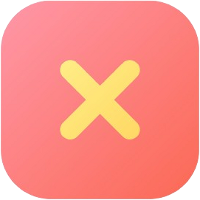
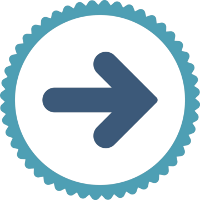 Open an account on our website and upload your CV;
Open an account on our website and upload your CV; Check your account on our website, phone, and email every day until you receive a job offer from an employer;
Check your account on our website, phone, and email every day until you receive a job offer from an employer; Complete the contract and pass the interview;
Complete the contract and pass the interview; Your employer will contact you for further instructions;
Your employer will contact you for further instructions; Your employer will complete the contract and then they will send it to you (generally by DHL Express) together with the other agreement documents that you must sign;
Your employer will complete the contract and then they will send it to you (generally by DHL Express) together with the other agreement documents that you must sign; You will determine the cost of your trip, including the VISA, plane tickets, train tickets, and other expenses;
You will determine the cost of your trip, including the VISA, plane tickets, train tickets, and other expenses; Based on your calculation, you will receive up to $ 3500, to cover your departure expenses;
Based on your calculation, you will receive up to $ 3500, to cover your departure expenses; With your contract, letters, tickets, and money, you will be able to apply for a VISA.
With your contract, letters, tickets, and money, you will be able to apply for a VISA. Transportation from your place of origin to the destination country, including travel documents;
Transportation from your place of origin to the destination country, including travel documents; Transportation from your place of residence to the workplace;
Transportation from your place of residence to the workplace; Health insurance;
Health insurance; Accommodation consisting of a standard single room with a private bathroom;
Accommodation consisting of a standard single room with a private bathroom; Access to a laundry room and room service (if available);
Access to a laundry room and room service (if available); Safety equipment (if necessary);
Safety equipment (if necessary); Breakfast, lunch, and dinner;
Breakfast, lunch, and dinner; Wi-Fi, TV, and air conditioning.
Wi-Fi, TV, and air conditioning.
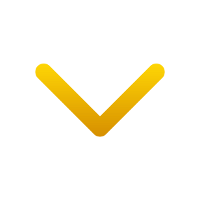 Show all
Show all Personalized Job Matches
Personalized Job Matches Easy Application Process
Easy Application Process Support & Guidance
Support & Guidance Access to Verified Employers
Access to Verified Employers Persistence transforms goals into reality
Persistence transforms goals into reality Stay determined, success will follow
Stay determined, success will follow Confidence opens doors to opportunity
Confidence opens doors to opportunity
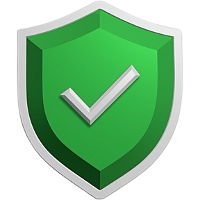 Declared safe to use by SSLTrust.
Declared safe to use by SSLTrust.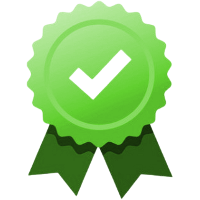 is a verified website.
is a verified website.
 Legitimacy
Reviews can be misleading. Please visit us at .
Legitimacy
Reviews can be misleading. Please visit us at . Pinned review
Pinned review 5
****toli@gmail.com
5
****toli@gmail.com

 Pinned review
Pinned review 5
**********ny22@yahoo.com
5
**********ny22@yahoo.com

 Leave a review
Leave a review
 APP
APP Android,
Android,  iOS and
iOS and
 Windows.
Windows.
 Smart Job Matching
Smart Job Matching Advanced Search
Advanced Search Real-Time Notifications
Real-Time Notifications Application Tracker
Application Tracker (Artificial Intelligence) technology to make job
searching faster, easier, and simple. Our AI automatically searches for the best job opportunities based on your profile and preferences. Once we find a match, we contact the employer for you, saving you time and effort. All you need to do is apply, and we handle the rest.
(Artificial Intelligence) technology to make job
searching faster, easier, and simple. Our AI automatically searches for the best job opportunities based on your profile and preferences. Once we find a match, we contact the employer for you, saving you time and effort. All you need to do is apply, and we handle the rest.